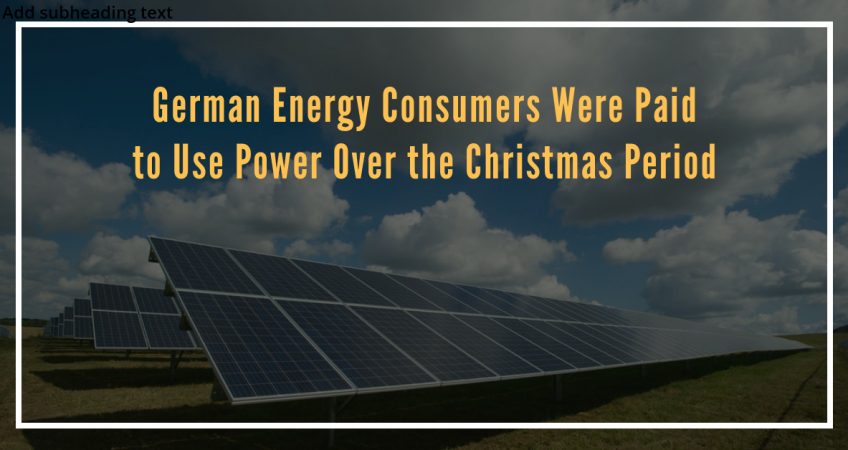In the modern world, we’re all constantly being told to lower our energy usage to help protect the planet.
We’re encouraged to reduce our own carbon footprint by switching off lights, not leaving devices on standstill, and limiting the kitchen appliances we use – limiting energy use among the populace has been a common refrain for many governments in the last decade.
However, there is one exception: Germany. Germany has always been a front-runner when it comes to understanding the power requirements of future generations.
The country is outpacing nearly every other country in Europe when it comes to transitioning to renewable energy; up to 35% of the energy Germany uses is currently provided by renewable sources.
The Germans, it seems, have always kept one eye firmly on the energy requirements of the people.
The Strange Consequence of this Behaviour
One would think that Germany’s forward-thinking attitude to energy would have nothing but a positive impact, but surprisingly, there has been a consequence.
Over the Christmas period, German consumers were actually paid to use electricity.
The reason for this was simple: supply was outstripping the demand for electricity. Essentially, Germany had more electricity than the country could use.
An abundant supply of wind-generated electricity combined with unseasonably warm weather to drastically reduce demand; a problem that was then exacerbated by the Christmas season.
Offices, businesses, and retail outlets – all high users of electricity during normal working periods – closed down for the holidays, leaving even more energy in the grid.
How this Worked
Power prices slipped into negative figures on Christmas Eve, December 24th, according to Europe’s biggest power trading website EPEX.
Prices then stabilised for Christmas Day, but dropped into the negative once more on December 26th.
This meant that for every unit of electricity that Germans citizens used, they actually earned money.
The businesses were the major beneficiaries of the negative prices. Large consumers, such as factory and warehouse owners, were paid around €50 per megawatt-hour of electricity used.
That means that for a standard eight-hour day, the profit over the Christmas period could equal up to €800 for industrial users.
While the profit is likely to be much lower for standard domestic households, most German consumers will likely notice an improvement on the usually-high winter fuel bills.
Germany is not the only country that occasionally experiences negative electricity prices. They are fairly common in other countries that have prioritised green initiatives, though the German negative prices tend to be the most common.
The reason for this is thought to be rooted in previous legislation: in 2014, the country passed its Renewable Energy Act, which enshrined Germany’s commitment to a green future.
Future Thinking
Germany does not appear to be particularly concerned by this development.
The country continues to forge ahead with its plans for a greener German future, and there’s no doubt that every other European country could benefit from the choices the German government continues to make regarding the environment.
For example, Germany has pledged to move to a decarbonised economy by the end of the century. The country has also pledged to source 80% of its energy from renewable sources by 2050, a pledge that current trends suggest is more than achievable.
Germany goes further still when considering greenhouse emissions, one of the biggest problems facing environmental campaigners.
Using 1990 as their baseline level for emissions, the country has pledged to reduce their greenhouse gas emissions by 40% by 2020.
Continuing further still, they are aiming for a 95% reduction, again from 1990 levels, by 2050.
There is no doubting Germany’s commitment to changing their environmental fortunes in the future, so this is unlikely to be the last time electricity prices dip into the negative.
It is worth noting that German customers will have been welcome of the, albeit temporary, reprieve.
German electricity prices have grown in recent years to provide funding for the green initiatives; in October, the price actually reached a record high.
No doubt the consumers who benefited from the negative prices on December 24th and 26th are glad for the momentary relief from their bills.
Despite the high prices, green initiatives are popular in Germany, reflecting that they retain their status as one of the few countries who are taking the threat to future generations seriously.
The country takes the demands of the future environment seriously, and has lead the way in Europe with a variety of eco-focused initiatives.
One can only hope other countries begin to follow their lead in due course.

